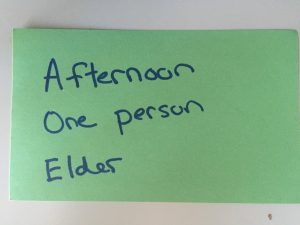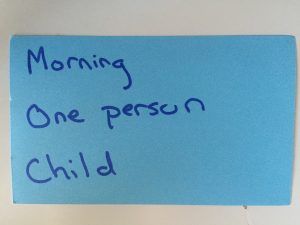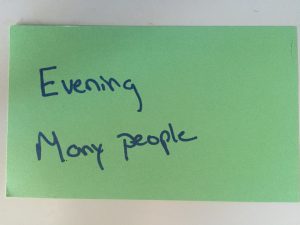Acholi/Lwo
A crash course in Acholi greetings
Now let’s take a quick look at basic greetings in Acholi. In Acholi-speaking regions, as in many places around the world, greeting is of paramount importance. Greeting is a way to demonstrate respect and build relationships with the people you encounter along your way.
This lesson will:
- Introduce you to the key concepts you need to keep in mind to greet in Acholi
- Provide an example of a native Acholi speaker greeting in Acholi and,
- Challenge you with a quick activity
Key concepts to greet in Acholi
Me acel, tye cawa. First, there is the time of day
To greet properly in Acholi you must take into account the time of day. Greetings change depending on if it is morning (odiko), afternoon (dye ceng) or evening (otyeno).
Me ariyo, tye conjugation loks pi acel dano ki dano mapol. Second, there is conjugation for words for one person or many people
Acholi uses different prefixes to indicate singular or plural greetings.
Me adek, I tye mwaka Third, there is age.
Acholi greetings differ depending on if the person being greeted is a child or an elder.
The Greetings
To greet one person in the morning, you say: icoo nining
To greet many people in the morning, you say: ucoo nining
To greet one person in the afternoon, you say: itye nining
To greet many people in the afternoon, you say: utye nining
To greet one person in the evening, you say: irii nining
To greet many people in the evening, you say: urii nining
*Note, in Acholi a “c” is pronounced as “ch”.
Directing greetings to youth and elders
To direct your greeting to a young person, add “Latin”. To direct your greeting to an elder , add “Ladit”.
Pronunciation by a native speaker
Take a couple minutes to watch Eunice greet you in the morning:
Now, its your turn
The cards below provide the three conceptual prompts you need to formulate a greeting in Acholi – age, number of people, and time of day. See if you can formulate the correct greeting! (answers below)



- Card 1 – Afternoon, one person, elder = Itye nining, ladit?
- Card 2 – Morning, one person, child = Icoo nining, latin?
- Card 3 – Evening, many people = Urii, nining?

